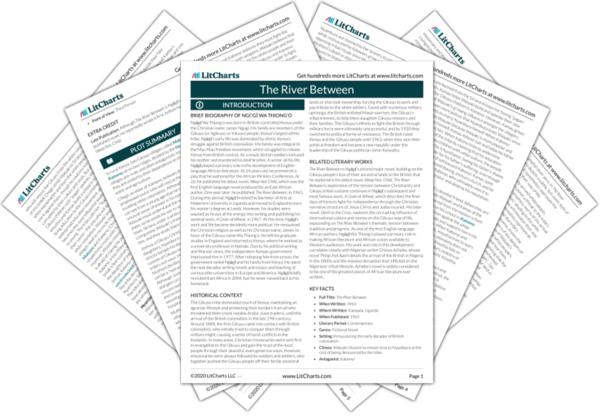Nyambura’s appreciation for Christianity is tempered by her need for Waiyaki, for a “black messiah.” Like Waiyaki and Muthoni, Nyambura thus refuses to strictly adhere to one cultural force or the other. This again suggests that an integrated middle ground can exist between two opposing ideologies, even though it may be difficult to remain there.
